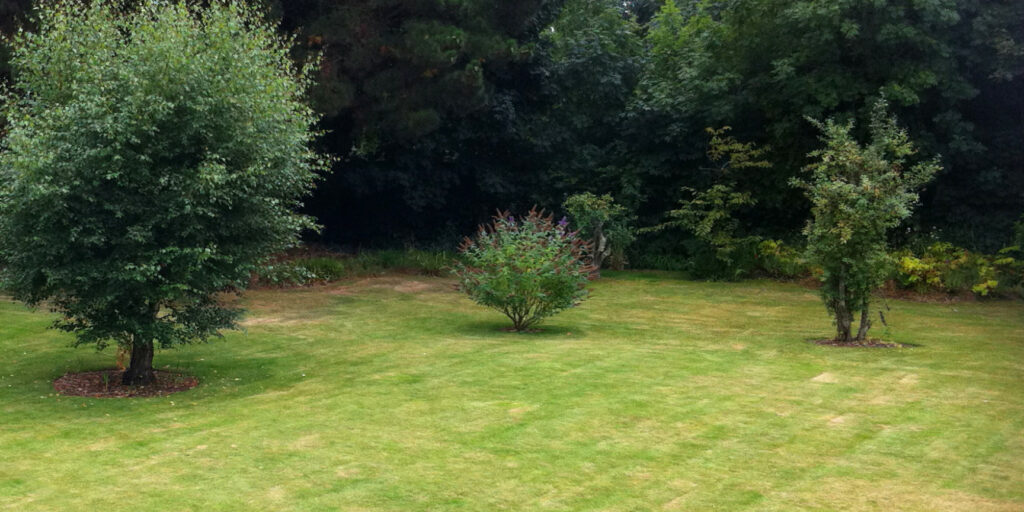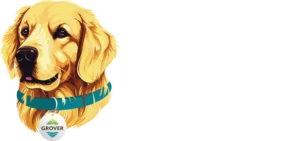Frustrated by your brown, patchy lawn? Sometimes, no matter how much you water your grass, it just doesn’t seem to grow well. Here are some of the most common culprits killing your lawn — and what to do about them.
Grover Turf Care is Knoxville’s top choice for deeply rooted, flourishing lawns. Call us to learn more about our nutrient-rich soil amendments and fertilization programs built on the same principles as golf course turf management.
What Grass Needs to Survive
Like any plant, grass needs sunlight, water, and nutrients to survive. While this might sound like basic life science, deficiencies in one of these three areas are almost always what’s killing your grass. Not enough sun or not enough water are fairly easy to account for, but inadequate nutrition can be harder to spot — and the answer isn’t always to blast your lawn with more fertilizer. Sometimes, the problem lies in the soil itself, or an invasive pest is to blame.
When we hear from residents that their grass isn’t thriving, the reason usually falls under one of the following categories.
1. Summer Heat
Too much of a good thing can be a bad thing. Yes, grass needs sunlight to survive, but extreme temperatures cause two problems. One, those sweltering Tennessee summer afternoons will evaporate water before it soaks into the soil. Two, high temperatures can damage the root system. Picture how vegetables shrivel up when you cook them in a frying pan. When the roots don’t function properly, the grass won’t get sufficient nutrients from the soil.
Generally speaking, grass is pretty hardy, but July and August especially can bring damaging heat. The best approach is to water early in the morning, so the grass has time to absorb the moisture and to make sure you’re caring for the health of the root system with soil amendments.
2. Fungus
Like excessive heat, too much water can also be bad for your grass. But it’s not the water itself that causes damage. Fungi thrive in damp environments, and the new growth will either compete with your lawn for resources or introduce a chemical to the soil system that’s toxic to your grass. Especially in early summer, fungus is a common lawn problem.
If you see mushrooms, fuzzy or powdery spots on the grass blades, or brown, circular patches, fungus is likely what’s killing your grass. Allowing for proper drainage will help make sure your lawn is not trapping extra moisture.
3. Pests
From grubs to cutworms, East Tennessee has its fair share of lawn pests. These critters will either directly kill your grass by eating it or, because they live in the soil, will cut off the supply of water and nutrients. It’s important to note that not all insects are harmful to your grass. Some species can help break down thatch or even improve soil aeration.
For this reason, it’s important to use mild insecticides that are chemically targeted to certain harmful species so you aren’t also impacting earthworms and pollinating bees. At Grover, we recommend preventative treatments instead of waiting for a pest problem to emerge.
4. Nutritional Imbalance
Natural processes such as erosion and the typical growing seasons will deprive your soil of key nutrients. In theory, composting plant material will replenish these nutrients, but the reality is that soil composition will become imbalanced over time. The exact ratio of nitrogen, phosphorus, and potassium is important for strong turfgrass health, as is the soil pH.
This is why we always start our residential fertilization programs with soil testing. If you add a nitrogen-heavy plant mix to soil that’s already nitrogen-rich, for instance, you could end up harming your lawn. This is why both under-fertilization and over-fertilization could be killing your grass. The real issue is a nutritional imbalance.
5. Damage
Finally, sometimes grass dies because an external force kills it. If you leave a swimming pool on top of your lawn all summer, you will certainly have a circle of brown, dead grass when you remove it. Likewise, if you have heavy foot traffic in a particular area of your lawn, the grass may look more brown and worn out there.
Too much pressure not only bends the grass blades, but it also compacts the soil. This restricts the roots’ ability to deliver water and nutrients, and ultimately the grass can’t survive. In some cases, grass goes dormant and will grow back under more favorable conditions, but in other cases, your best bet is to reseed the area.
Call Grover Turf Care
At Grover, we don’t believe in one-size-fits-all turf care programs. We start with a thorough evaluation of your property and soil testing to determine the next steps. You can choose between our golf course quality treatment program or a fully organic approach. In either case, our treatment plans are backed by turfgrass science and more than three decades of horticultural expertise in East Tennessee.




